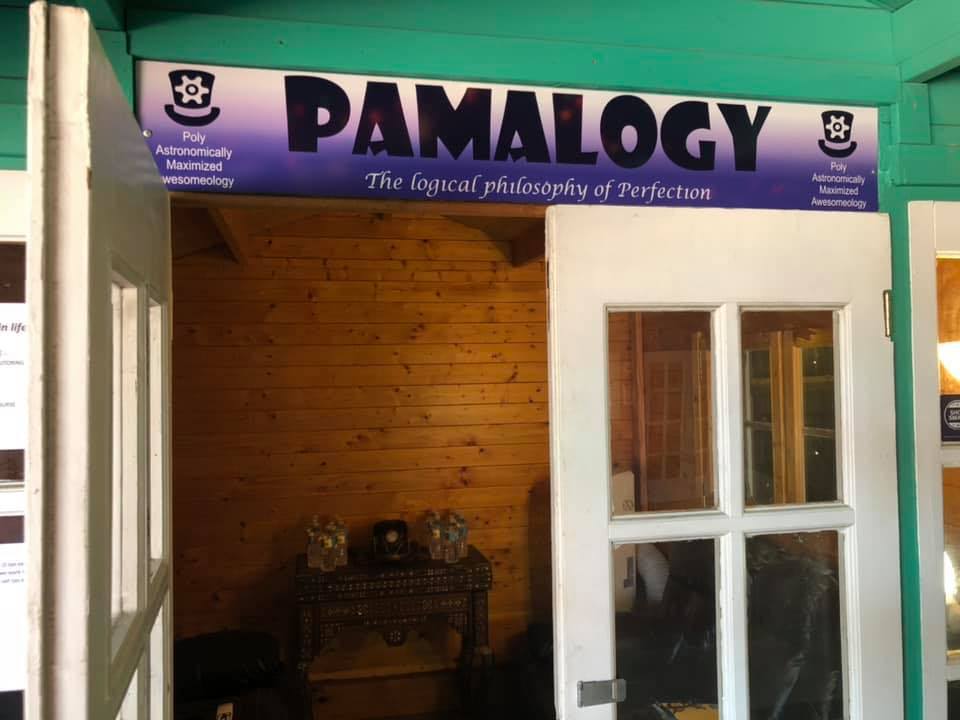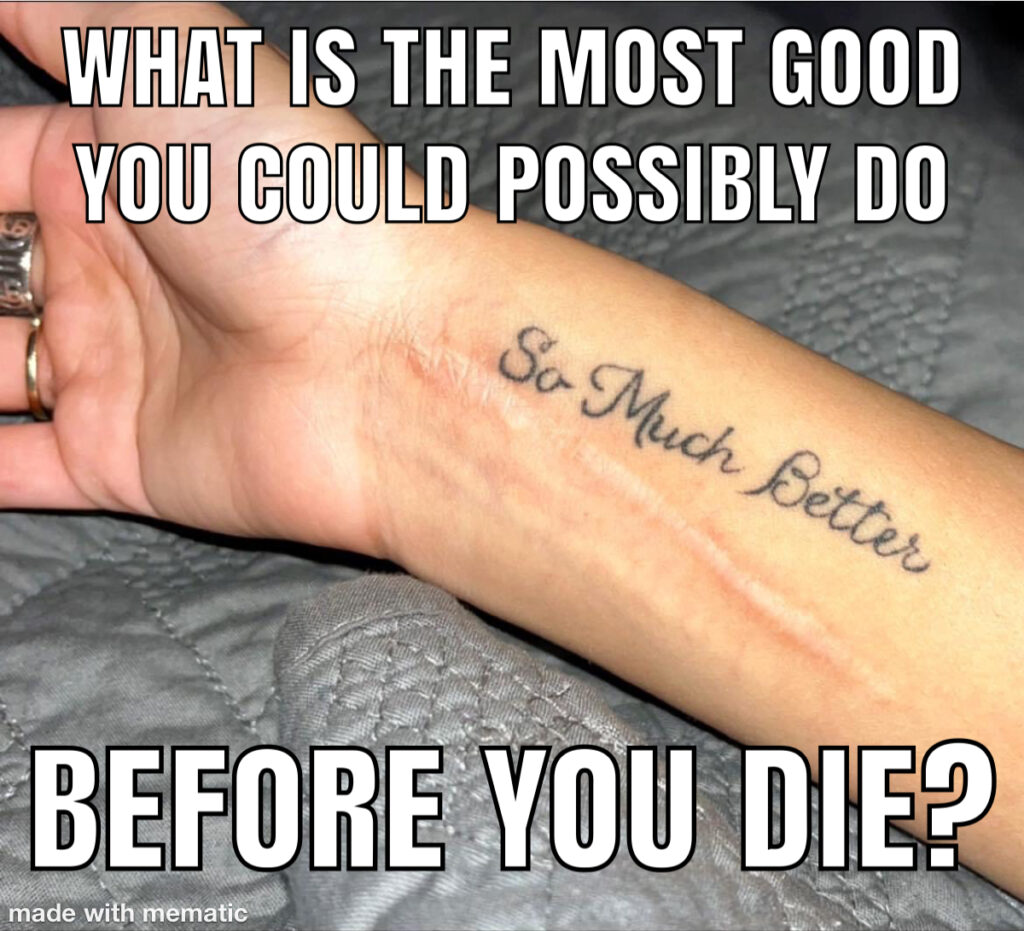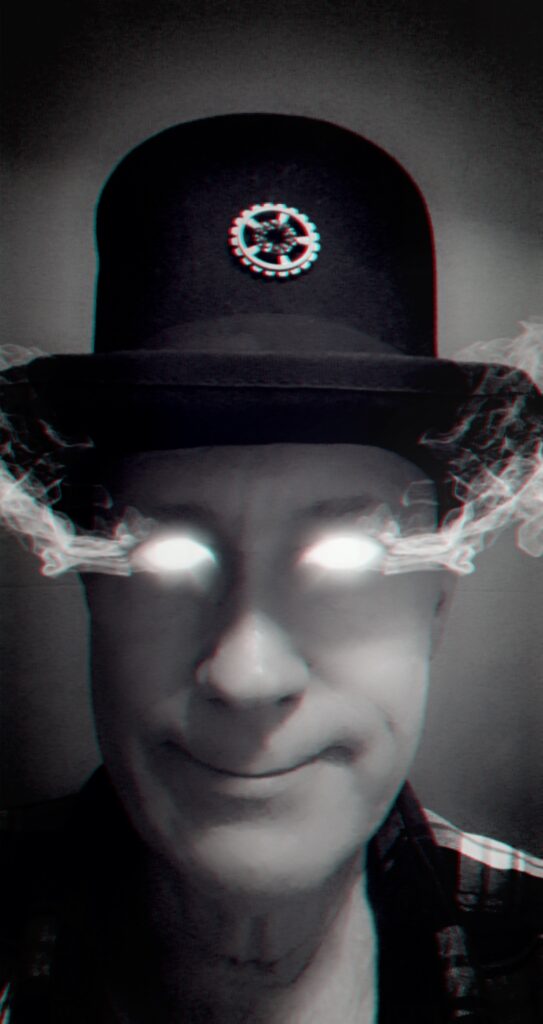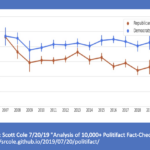Today I’m going to introduce the Pamalogy Society and tell you what incorporation means to us. Since this is the Pamalogy Society’s first blogcast, I’ll explain what you can expect here. I’ll tell you a little about myself and give you an orientation. Ready?
The Pamalogy Society is on the verge of incorporation. As its founder, it is my job to communicate all that the Pamalogy Society is, what it’s not, and why we’re doing what we’re doing. And since this is our very first blogcast, introductions are in order. I’ll give you a run down on what to expect.
First, the format and some housekeeping. During our first season, this is going to be a solo blogcast. I recommend you subscribe and listen to each episode in the order they’re released. As we begin, new episodes will come out every other Thursday at 5am EST. Once we get enough supporters, I’ll move to once a week. Next season, I’ll start bringing on guests. A solo cast in Season One will help everyone catch up on what the Pamalogy Society blogcast is all about.
Episodes will generally last 27 minutes. If the subject requires a little extra time, I’ll announce that up front. The current episode is one of those. It will take about 37 minutes to give you a fair introduction and orientation. Most programs will be a bout ten minutes shorter than this. So, that’s the plan.
For this show, I prefer the term “blogcast” to “podcast.” That’s because my transcripts have helpful charts and images and links. They’re like a blog and a podcast transcript combined.
When you visit Pamalogy.com to find and share our transcripts, be sure to sign up for the Pamalogy 101 course. It’s free. And if you pass the Pamalogy 101 course, I will send you a pamalogy top hat. Cool, huh?! Pamalogy top hats have symbols sown into them representing your roles and accomplishments in the Pamalogy Society. We’re not some esoteric order. Everything is out in the open for the world to see. But you do have to earn your widgets if you want to be recognized.

So, what’s pamalogy?
People ask me what pamalogy is all the time. If you got this far, you might be aware that it’s short for “Poly Astronomically Maximized Awesomeology.”
That may not help much. It sounds sort of like astrology or astronomy, or maybe palm reading but it’s totally not any of that.
Take note of the fact that there’s no “l” before the “m” in pamalogy. It’s pronounced pamalogy, not palmology. Also, I said “astronomically,” not “astrologically.” Poly Astronomically Maximized Awesomeology is quite a mouthful and it says a lot. It’s best to take pamalogy from the last word and work back to the first. If you can’t remember the whole thing that Pamalogy stands for, here’s a short cut – pamalogy is the philosophy of awesomeness. The rest of the words are modifiers. It’s awesomeology. Awesomeology is everything that could be cool. Pamalogy is the logic of awesomeness.
Now, if you take awesomeness to the max, that’s perfection. Awesomeness to the max – maxmized awesomeness is the thing there couldn’t be anything better than – whatever that is. And by definition – that’s perfection. But hold everything right there. A lot of people don’t like the word “perfection,” and for good reason. Pamalogy may well include the “logic of perfection” as part of what it is, but I avoid the word “perfection” these days. Pamalogy isn’t asking anyone to try to be perfect. That’s not even possible. A person who tries to be perfect is called a perfectionist. Usually those people are very unhappy. They might need therapy, and maybe some meds. Trying to be perfect is absolutely not what pamalogy is about. Are we clear on that?
To maximize our own awesomeness, we can ask ourselves some helpful questions. If you can be the best you that you can be, then that’s a worthy goal. So, we can talk about various ways to be your personal best as I share my own journey and vision with you.
I also used the word, “philosophy.” Philosophy is the love of wisdom. Pamalogy is a philosophical system. It is the philosophy of awesomeness. But is philosophy awesome? Some people think so. It can be. But to maximize its awesomeness, I think it is important to direct this blogcast to a broad audience. People schooled in philosophy are welcome here but I won’t be talking to philosophers alone. I’m looking for people who want to improve their lives and share a better world. I like leaders. I might inspire you to become one, or help you tweak your awesomeness.
I’m directing this blogcast towards non-philosoper type people who have leadership potential. Does that describe you? I’m guessing that for no other reason than you follow podcasts, that you make good use of your time. Because you do that, or read blogs, and because you were curious about the word, “pamalogy,” I’m guessing you are probably above average in intelligence, but I won’t assume you have any background in philosophy. You might have thought the word had something to do with astrology, or palm reading, or some occult science or practice. It’s not any of those things but it is a form of philosophy.
You will get a little bit of traditional philosophy here. I’ll explain any necessary philosophy industry jargon as I go, but my clear objective is to explain awesomeology – nothing more. I think a lot of people would be interested in this topic – pretty smart people. Make sense?
Awesomeology refers to several things. When awesomeness is maximized, if we’re talking about you, then that’s one thing; if we’re talking about a country or an economy, or the world, then that’s another. And if we’re talking about even bigger questions, like how the Universe might ideally be designed, well … that’s where the logic of perfection steps in.
What is perfection? The definition is pretty simple. Perfection is that than which there could be nothing greater. Right? Well, for that than which there could be nothing better, nothing greater, nothing more awesome to be real, wouldn’t that mean that every good possible thing would have to be part of reality?
This is a logical question and it leads to many others, so that’s why I call it the “logic of perfection.” You take the definition of perfection. And you think about its implications if it is a reality. So, if every good possible thing had to be real, could all that goodness be contained in just one Universe?
I think the answer to that question is no. I don’t think every good possibility could fit into a single Universe. I think that for Perfection to be real, a whole lot of Universes would be required. For that sort of ultimate-scale awesomeness to be maximized, it would have to be Poly Astronomical. It would require many Universes – many astronomies. “Poly” means many. Hence our name – Poly Astronomically Maximized Awesomeology – Pamalogy for short.
Pamalogy involves both this grand scale type thinking through what maximized awesomeness might be, and small scale thinking, such as asking “what’s the best way for me to respond to a specific situation? Should I send that text? Should I eat that ice cream? Maybe it is something larger, like “should I marry this person?” Or, “should student loans be forgiven?” It would also involve world-scale thinking like, “what is the beset solution for Ukraine?” Or, “what is the best political or economic system?” Or it might involve ethical questions like, “should we eat meat?”
Along those lines, do you know what a pamalonomy is? Stick around and you’ll find out. We talk about pamalogy here, which includes the subject of pamalonomies.
Awesomeology is about you being as awesome as you can possibly be. Maximized Awesomeness is your best, the whole world’s best, and also some theoretical things, like how do you measure it? And exactly what is “that than which there could be nothing greater”?
Would that be God? Is there a God? How would you describe God if God was Maximized Awesomeness? What attributes would that sort of God have? Philosophy has been talking about the possibility of God for a long time and pamalogy will too. A lot of philosophers have concluded there can’t. be any such thing as God because they see evil in the Universe. They don’t think God would allow that if God were real. Do you think they’re right? We’ll talk about that.
So, one of the things we’ll talk about is God, but I need to make sure you are aware that pamalogy is not a religion. There is a difference between faith and reason. You could be a Catholic pamalogist, a buddhist pamalogist, a muslim pamalogist an atheist pamalogist or any sort of pamalogist. Pamalogy talks about God in terms of the Maximization of Awesomeness. It isn’t attempting to validate any particular tradition or set of beliefs. It isn’t basing its reason on any set of scriptures or tradition. If any one faith tradition is correct, then great. Pamalogy may support it. Or, then again, it may also question it.
Among many other things to ask, pamalogy asks you what is the best thing you can conceive of? What is Perfection? Is there any basis for thinking Perfection might be real? It also asks thinks about practical every day things in this world too. How can we maximize our awesomeness?
Are these subjects you think you might be interested in? Well then, maybe you’ve come to the right place because that is what pamalogy is.
So what is the difference between Pamalogy and the Pamalogy Society? The difference is incorporation. Our subject for today. I’m the founder of both Pamalogy as a philosophical system and of the Pamalogy Society, so you probably want to know something about me, as well. I’ll give you some of my own background as we go. First let’s talk about the Pamalogy Society.
The Pamalogy Society is a non-profit corporation, or will be as soon as we seal the deal on incorporation in the coming days. It is dedicated to seeing the values of Pamalogy maximized in practice with the combined power of many people. Non-profit corporations, public charities, are useful in many ways for achieving great things. The philosophy of awesomeness in action is about doing things, not just talking about them. We aren’t arm-chair critics of the world. The Pamalogy Society will strive to be, and to support, the awesomeness of which it speaks. As such, the Pamalogy Society is designed to be more than a philosophical society. If you’ll read its mission statement, you’ll see that the Pamalogy Society is called to be an incubator, providing material support, funding and volunteer help for worthy projects. The goal is not just to talk about the maximization of awesomeness, but to do all we can to participate in making it happen.
So that’s what the Pamalogy Society is and I’m its founder. You’re probably curious about me.
Now, since we’re going to talk about God as Maximized Awesomeness, you might be interested to know about my faith tradition, so I’ll start there. What are my biases as a philosopher? Like most people, I grew up with some amount of religion around me. My father was Catholic and my mother was a Presbyterian. They argued openly about their faith in front of the children, so I got a strong dose of what divided Reformers and Evangelicals from Catholics when I was young. The fact that my parents disagreed made me realize it was normal to have choices to make about religion. My parents’ ongoing open debate caused me to ask some deep questions that many people never ask.
I often asked if either of them was right … or anyone at all, and I still do. I felt obligated to explore Eastern religious traditions and absorbed as much as I could. Of course, it would take me many lifetimes to explore every faith. I’m always learning. Gradually, I discovered what made the most sense to me personally. While I compared the Rig Veda with the Bible with the Quran and so on, and spent time practicing meditation, and later in prayer and receiving sacraments in liturgical traditions, or in considering biological evolution and cosmology and critical interpretation of sacred texts, I continued to question things, not always having certainty. I tend to be agnostic about religious denominations and Biblical fundamentalism, but I’m a theist.
Basically, what I do is place some matters into the category of logical necessity. Those things I can be certain about. Other things, such as which religious expression is true, I place into the category of faith. I can’t prove Jesus rose from the dead or that He was God incarnate, or that the Bible is inerrant, or that the story of the flood is true. Those are matters of faith. I can choose to believe them. If I’ve seen miracles, that might affect my beliefs. Those things I may have seen with my own eyes. They provide a measure of empirical evidence of things to me personally. One of the things to sort out is what the implication is of the experience of what seems like a miracle and how that should affect what I believe. We can talk about that.
You probably know there is a huge difference between head knowledge and knowledge of the heart. For me, both grew together. I did experience what seemed like miracles to me. They’ve been awesome, but they aren’t very useful for conveying what is true. If there isn’t some scientific or psychological explanation, it is still very personal. It isn’t something I can share very easily and it doesn’t necessarily follow that if something that seems like a miracle takes place in a specific religious context, that that validates the religion.
I had my first profound religious experiences when I was in high school and college in the 1970s. I was studying music composition at the University of South Carolina and had a theory that music was connected to a spiritual reality that could be tweaked to maximize awesomeness. I remember going through a dry spell in my writing and contemplating where thought itself comes from – where anything comes from, including life itself. What if every moment was just made fresh out of pure creativity in the mind of God? What is inspiration?
As a music composition major, I was fascinated by both Indian and Western modes. I also had God experiences listening to Bach no less profound than those singing worship songs at a Catholic charismatic conference. I practiced kundalini yoga after college and read a number of books by Bubba Freejohn. Shortly after I graduated, I met a Catholic girl I got engaged to, which led to my conversion to Catholicism. She wasn’t the one though. It turns out I was more interested in her religion than I was in her. I left her as I attended a regional Catholic Seminary from 1982 to 1986, discerning whether I should become a priest. I kept sensing I had a vocation, something to do with what I was learning, but it wasn’t to the priesthood.
Then I met the woman I would marry in 1989. She sang in the choir at an Assemblies of God Church, which is Pentecostal. I convinced her to convert to Orthodox Christianity with me in 1991 as I finished up my Masters degree in theology and served as an adjunct professor in a very controversial seminary – the St. Michael Academy of Eschatology in West Palm Beach, Florida. We used words like Orthocostal and Pentedox to describe whatever it was we were. We embraced everything. We were critical of everything. I still don’t have a PhD but I’m a lifelong student and have a total of about nine years of post-graduate education. I’m currently enrolled as a student at Arizona State working on yet one more degree – this one in Interdisciplinary studies, Organizational Leadership and Philosophy.
Anyway, many years of prayerful thought went into all this. I developed the philosopical system I came to call Pamalogy over the course of about forty years but the name “Pamalogy” itself didn’t pop up until 2017 or so. It became clear to me long ago that the purpose of life is awesomeness, and the maximization of awesomeness requires many Universes, not just one.
That should be enough background on Pamalogy as a philosophical system for now. Believing and doing are, of course, two very different aspects of life. So now, as I share my own journey some more, let’s talk about what we’re doing. I want you to know what our intentions are by incorporating and seeking a 501(c)3 status as a public charity.
To do this, I want to ask you a question. When you consider your own life, what is the most good that you could personally do in this world before you die? Have you considered this question much?

As I’ve attempted to get a clearer picture of my own vocation, I’ve asked myself this question many times. “What is the most good I can do on this earth before I die?”
Now, I’ve been an Uber driver between other jobs during my life and also driven for Lyft and Yellow Cab and done many other driving jobs between real jobs and could tell you many stories after giving over thirty thousand rides to about a hundred thousand people. Not all are talkers but many are. A lot of the conversations have been about Pamalogy. People ask me about my hat and the next thing you know we’re talking about what the most awesome possible things are.
A lot of passengers are moral relativists. They don’t have an absolute sense of right or wrong, good or evil. Some question whether the word “good” has any real meaning at all. The question, “what is the most good you can do before you die” sets off a trigger word for them. They don’t like the word good. Replacing this word with awesome works better. So, if you are of that mindset, I can rephrase it. What are the most awesome things you could do before you die?
Now as for the existence of good and evil. If they doubt there is any such thing, what they’re really saying is that it would be perfectly fine if I hack into their bank account and take all their money, because there is no such thing as good or evil. Right?
OK. Maybe not. Maybe they’ll draw the line on harming others. It’s a matter of being civil and living and making society work for everyone. But if being civil is good, then there’s that word “good” again. I detect a value there – some judgement we can all agree on, that there are some things that are more desirable than others – world peace, for instance. If a value like world peace is just a human construct, then why seek it? So, no. I won’t accept that there is no such thing as right and wrong, good or evil, better or worse, and so on. I know it is true. They know it is true.
Now, the subject of what constitutes right and wrong goes beyond what I want to talk about today, but we all know it as ethics and morality. And when I ask the question, “how could you do the most good before you die?” I’m asking an ethical question. But it is more than ethics. It is aesthetics.
Ethics asks what is right and wrong. Aesthetics asks what is the most beautiful. I’m sure you know that neither ethics nor aesthetics are easy subjects. Beauty is in the eye of the beholder. And maybe, parallel to this, right and wrong, good and evil, better and worse, are also in the eye of the beholder. Unquestionably, we all have our own ideas about both, yet we seldom doubt the existence of either one. We don’t say there is no such thing as beauty just because we don’t agree on what is the most beautiful.
So … in asking the question, “what is the most good you can do in this world before you die?” I’m asking a personal question. I’m asking you to answer it for yourself. It isn’t about some set of rules that would apply to each person. It is your question. I’m guessing that you have some idea of what the answer to this question is for you because you are a podcast listener or because you read my blogs. You are an exceptional person. There are a lot of people who have never asked.
For me, I decided to write down all of the things I thought would do the most good in this world before I died. I looked around me and saw things that weren’t working – things that I might be able to fix. I figured that if I wrote down my ideas and then asked for help implementing them, that would be a great first step towards making them happen. I was very concise.
But writing the ideas down wasn’t enough. I wasn’t going to let the ideas get buried in some pile of papers somewhere. I was going to take measures to get these world-improving ideas into a place where they would most likely be acted upon. So I put my list of things to do to improve the world before I die in the most conspicuous place I could think of. I posted them publicly on my web site at JamesCarvin.com, right on the front page of my web site.
This was the list of the things I was going to attempt to do before I died. Each one of them fixed a problem that I saw in this world. If you haven’t done this, I highly recommend you do it. Don’t just write down your goals. Stick your neck out publicly and publish them for everyone to see. So that’s what I did.
The next step, is incorporation. But that’s not as easy as it sounds. So, today, I want to share my journey of incorporation with you. It isn’t just the incorporation of the Pamalogy Society – it is a summary of all I’ve been telling you about, and how that all turned into what is becoming the Pamalogy Society now.

Incorporation means people working together as one. As a founder of a concept, it means releasing that concept to others to see through into reality. Great ideas are seldom things people can do alone. In my life, if I’ve failed, it has been a failure to surround myself with people who shared my vision and were able to help.
Now, sharing a vision is no easy task. The more elaborate a vision is, the harder it is to convey. If I see in great detail, I still have to somehow simplify what I see so that other people can digest what I have to share. Digestion begins with nibbling.
Sharing isn’t that easy though. Have you ever seen something with great clarity and depth? Then as soon as you go to share your idea with someone, they have their own idea about what it could be. Did they lose interest in what you saw before you finished sharing it all? Did they veer off onto their own track? Did they interrupt?
You adjusted. Right? People actually have a lot to contribute. I love hearing their ideas. I’ll consider them and see if there’s a fit between our visions. Gradually … eventually … I’ll also want to share the entirety of my thoughts. Not every type of thought fits nicely into a sound bite that can be consumed in a single conversation. Those who follow my blogs and podcasts and take my courses will eventually see the big picture that I see – the thing I call “maximized awesomeness.”
And then there is you. I’d like to hear from you too. I love knowing how other people see the world and its potential. Incorporation means working together towards a corporate goal. It refers to a body of people – a corpus. When we incorporate, we come together as one. There’s a good chance that I don’t even know what our potential might be together. Your vision plus mine might just involve a very symbiotic awesomeness. Let’s combine our ideas and explore how they could best be integrated.
This works in several ways. Vertically, on a podcast or blog platform it gives those like me who take the time the opportunity to share the entirety of a vision from start to finish. Horizontally, it gives you the chance to join in to add your own perspectives to any part of that vision, sharing all of your own thoughts. Others will want to add their own input. Together we can be a very powerful force – one with many eyes, many minds working as one, may hearts, beating together, changing the world, maximizing awesomeness.
Each of us also has a unique journey. I look forward to hearing your story. As for me, I come from a line of entrepreneurs, but my father lost his money and I didn’t have enough family and friends money available to get any of the world changing ideas listed at JamesCarvin.com started. So, so far, my story is a story of an entrepreneur “wannabe.” The Pamalogy Society, as an incubator, is designed to address this precise problem.
I recently went through my old tax files as far back as I’d kept them and dug up almost thirty business cards, each representing an enterprise I tried to get off the ground. I reflected back on my life and thought about how different the world would be today if I had succeeded in even one of these ventures. As it stands, none of the businesses I wanted to start had sufficient capital to get started. The old adage, “it takes money to make money,” tends to be true. I’m sure building an empire from scratch can be done. We always hear rags to riches stories, but try as I did, that never worked for me.
A very typical problem I encountered was a certain three-way interplay between investors, developers and the building of prototypes. The developers won’t build prototypes without cash. The investors won’t provide cash without teams that can build products, and at a bare minimum, they want to see working prototypes. There are two main work-arounds for this sort of circular problem. First, you could try to develop a prototype yourself, if you could. Personally, that’s a specialty that would require more time than I ever had to devote. There’s always a learning curve and I always had bills to pay. It might be something you could do. Who knows? Just not me.
Second, you might talk some developer friends into working together on a shared equity basis. I really like this idea and I’ve tried it a number of times. Unfortunately, it has yet to work for me personally. But hey, never give up. Right?
Let me take a step back and emphasize the impact new businesses can have in the world and bring all this back to the question I asked: “how can you, or how can I, do the most good in this world before I die?”
There are lots of different types of businesses. They don’t all do anyone any good. A lot of people assume that the purpose of business is to make money. For some people, it is, maybe most. For me, I have always asked myself what my purpose in life was. It is to maximize awesomeness. If I could create the type of business that would have a positive impact in the world, then I could leverage the power of incorporation to make huge changes.

For some businesses, it might seem the world could do without what they do and be no worse off. But even managing a net profit from a business with little world impact, or from a job and through savings, for that matter, can be used to improve the world. A little bit of money can go a long way. For me, personally, I’d like to see a direct positive impact in what I do.
As a music composition major. I always looked at the creative arts as ways to add beauty to the world. I’d be willing to earn very little if I was contributing to the world’s beauty.
Then when I graduated, life sort of took me by surprise. There wasn’t any market for my music. I took a job at a bank. N0w while there was certainly some value in helping people save their money and earn a few dollars in interest, I have to confess that I was deeply frustrated by the fact that nothing I was doing was producing anything that would have a direct impact on anyone. I had a deep inner-need to create something people could experience directly. I was just wired that way.
I’ll skip the details. By way of orientation here, I just want to point out that many entrepreneurs, including myself, are passionate about what they see, not because of money, but because of impact. It all comes down to the way they answer the question: “how can I do the most good in this world before I die?” Or, if you prefer, “how can I maximize my awesomeness?” A profitable business may be an essential ingredient in making awesomeness happen, but it isn’t the end game. Positive impact is – an impact that won’t exist without profit.
Now some people might suppose that a non-profit corporation doesn’t require profit because of the name, but that is not true. The Pamalogy Society will be a non-profit corporation when it incorporates, but what “non-profit” status means is simply that there are no shareholders. In other words, if we take in $3 million and spend only $2 million, in a given year, nobody gets to keep the extra million bucks. That money goes into the kitty for the next year to be spent on the programs the Pamalogy Society supports according to its mission.
There are all sorts of charitable organizations that have been incorporated and each has their unique mission. The ones we are most familiar with directly impact the homeless, the hungry or the sick. They help prisoners get back on their feet. They provide services for substance abusers and mental health. They fund medical research or education. They support local houses of worship and and political causes too. They ask for your financial support in thousands of ways. You hear them make their appeal. Something strikes your heart and you reach into your wallet. Few people really stop to think about what would happen if high impact for-profit companies were funded by those same charity dollars. What would happen if those with a mind to consider how they might have the greatest impact in the world received the funds they needed? For one thing, it would enable good hearted people to give more to traditional charities.
I think it would be easy to show that whenever the economy is strong, philanthropy increases, not just proportionately, but exponentially. And vice versa, when the economy is weak, philanthropy drops very significantly because charity, after all, is usually generated from excess disposable income. How well the economy is doing will depend on which politician you ask, but you could also use the appeals you get from your favorite charity in your inbox every day as a measure of the economy’s strength. When the economy is down – they hurt.
So, let me sum up. I’ve pointed to the pain point in getting businesses started. You can’t build a prototype without developers. You can’t hire developers without cash. You can’t raise cash without a prototype. Can’t, can’t can’t. And while some people have managed to pass through this hurdle, have you ever stopped to think about how many high impact businesses never came to exist because a silent majority of entrepreneur wannabes like me were never able to attract the talent they needed to realize their ideas?
It’s hard to put a number on this, but assuming there are many like myself, I’d be willing to guess it’s something near 99 out of 100. In other words, for every one business that went from concept to reality, there were a hundred that went from concept to the recycle bin. Imagine how much philanthropy there would be if the economy was literally 100 times stronger!
It means financing the arts. It means financing medical research. It means ending homelessness, hunger and disease. It means addressing environmental issues and improving education and so much more for the maximization of this world’s awesomeness. This is why in asking myself how I could do the most good in this world before I die, I wind up with a list of business ideas. In conceiving of what the Pamalogy Society could do as a corporation, the answer was as clear as day to me. It could finance pr0grams like those listed at JamesCarvin.com and provide the talent needed to turn these concepts into reality. In future Pamalogy Society blogs and podcasts, in addition to talking about awesomeology generally, I will describe each of these programs in detail and we’ll talk about ways we can work together to maximize our impact.
Ciao!
URL for sharing this episode on Social Media: https://player.captivate.fm/episode/b415a440-43d7-4709-bbd5-4e18ba31bdae
URL of the audio file: https://podcasts.captivate.fm/media/095a6f19-4a34-44cc-9d1b-3efe404258e8/episode1-incorporationorientation.mp3
Previous: This is the first episode!
Next Up: Truth Machine


